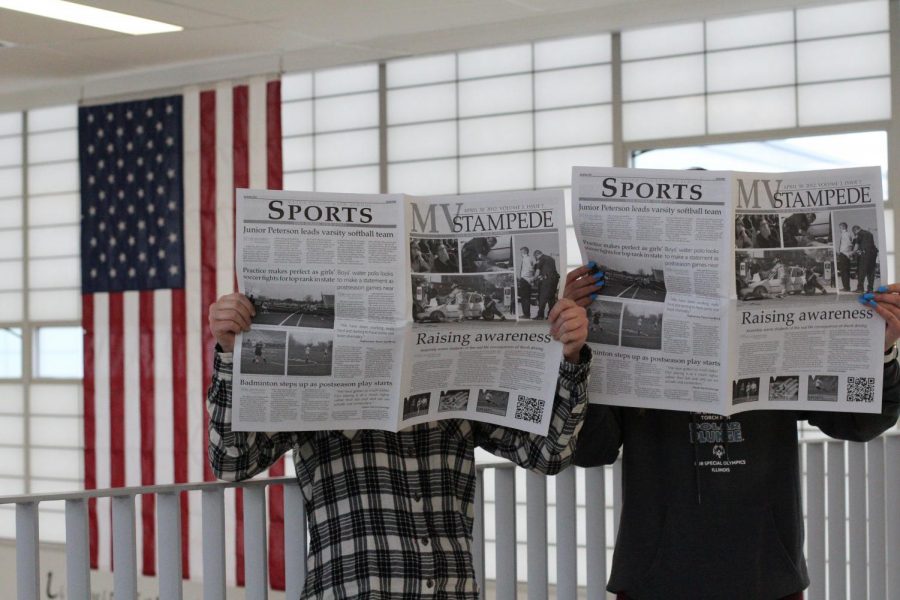Student voices are crucial in a democratic society built on the principle of free press
The Student Press Law Center celebrates Student Press Freedom Day to honor student journalists across the county.
Today is Student Press Freedom Day, a day that is dedicated to protecting the rights of student journalists across the country. While Illinois enjoys some of the strongest student press freedoms, student journalists in other states do not have such luxuries. Nineteen states across the country do not have any protections against censorship for high school journalists, and an additional 16 states have campaigns to guarantee press freedom.
Administrators at Metea support student journalism and allow for freedom of expression. Just down Eola, however, Waubonsie students do not have a newspaper to advocate for the student body. Students are left to gather information from the school and local newspapers, leaving a hole where issues that are most important to students go uncovered. Waubonsie recently found itself in a scandal where a student was filmed yelling racial slurs and the school community divided over the school’s role in discipline. Without a student newspaper, students were left with only the school’s information and coverage was left to outside news stations.
Student journalists play an important role in the school and local community. Oftentimes, student journalists provide a unique perspective and are much better equipped to tell the stories that affect students each day. Just this year, The Stampede covered a racist incident at a school event, the threats made against Metea, and the hiring of a new District 204 superintendent. While each of these stories could be covered by local news outlets, the addition of student voices allows those most directly impacted to have a voice.
Journalists and the press have encountered greater opposition in recent years. Rhetoric against the media in America and abroad have created a society that distrusts the news and emboldens governments to take action to curtail press rights.
Student journalists are particularly vulnerable to censorship, often at the hands of school administrators and districts. Students are at the mercy of adults within the school community and the imbalance of power leaves student journalists unable to appeal censorship decisions. Even in states with the strongest student press protections, prior review by school administrators is still permissible. Recently, Naperville Central’s Central Times was censored by the principal and ran an editorial detailing the prior review and restraint exercised by the school. The Central Times cited their concern about disciplinary action towards the staff and their advisor as the reason for complying with the school’s decision.
The media’s job is to tell the truth in the face of conflicting information, to share the stories of the community, and to allow citizens to share their opinion. In any democratic society, the freedom of the press is of the utmost importance. Student journalism is no exception. As the Supreme Court famously decided in Tinker v. Des Moines, students do not “shed their constitutional rights to freedom of speech or expression at the schoolhouse gate.”




Eugene A Lenskih • Jan 29, 2020 at 10:57 am
Democratic Society??? The Dems hate the Constitution and they hate free speech. The Republicans are all for freedom of Speech.
Eugene A Lenskih • Jan 29, 2020 at 10:55 am
Why is there a Liberal Agenda in schools every thing you post is so liberal its insane, would be nice if you could appeal to Republicans as well. But of course that will never happen right.